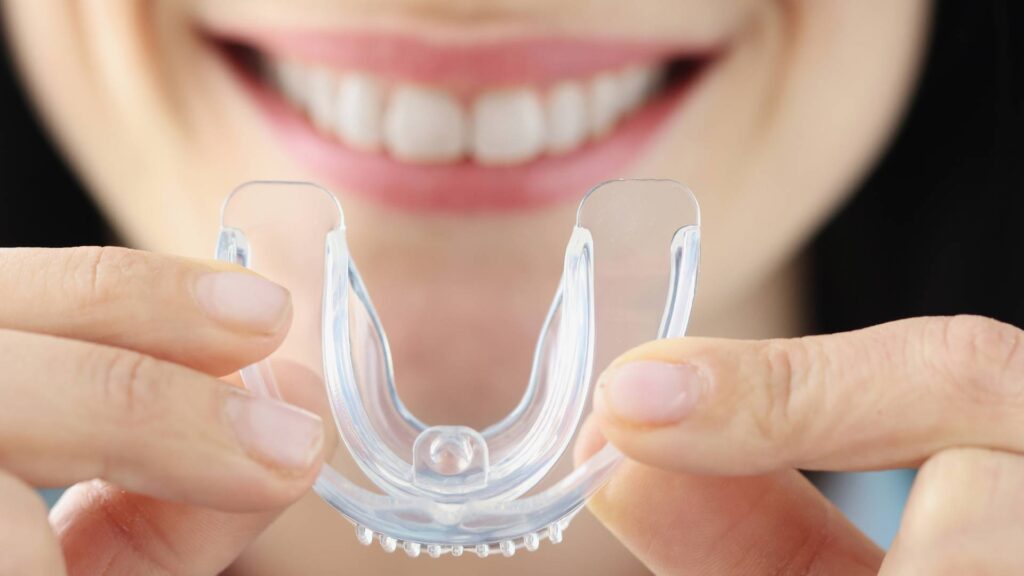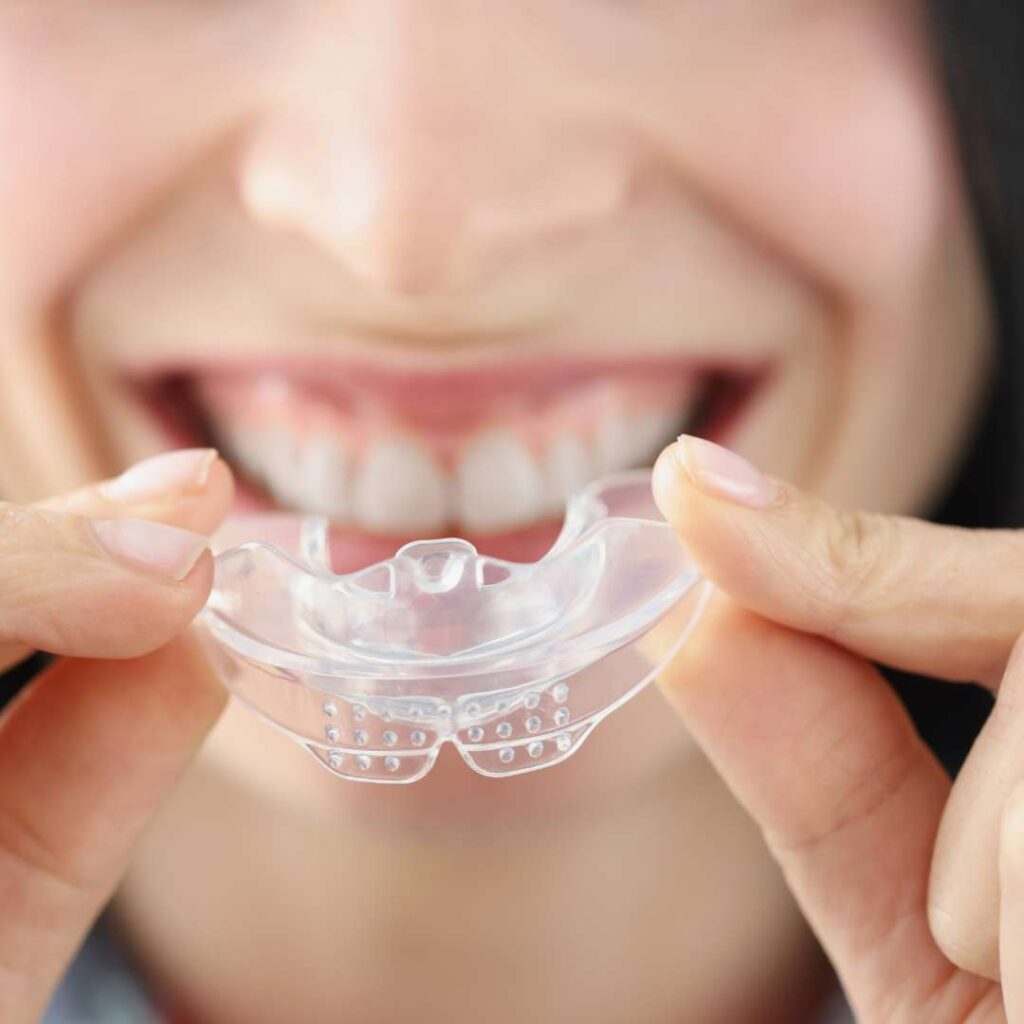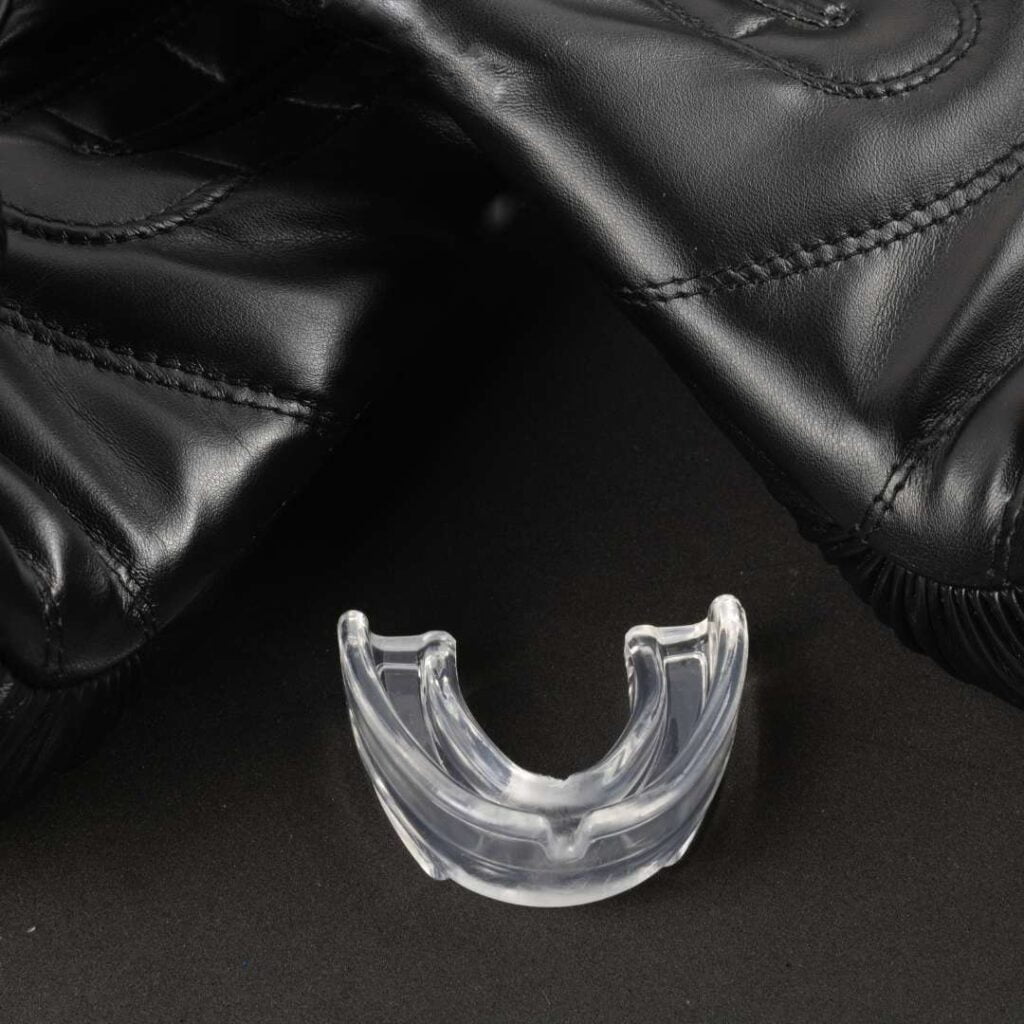
Service available at:
Find our clinic with ease using the directions provided on this page. Whether you’re coming by car, public transportation, or on foot, we’ve got you covered. Check out our hours to make sure we’re open when you plan to visit.
- Beliaghata UnitBeliaghata Unit
- Howrah Maidan UnitHowrah Maidan Unit
What are mouth guards?
A mouth guard is a protective device worn over the teeth and gums to prevent injury or damage to the teeth, gums, and jaw. They are typically made of a flexible, durable material such as rubber or plastic and can be custom-made by a dentist or purchased over-the-counter.
There are different types of mouth guards, including:
- Stock mouth guards: These are pre-formed and can be purchased at most sporting goods stores. They are the least expensive option, but they are also the least comfortable and may not provide the best fit or protection.
- Boil-and-bite mouth guards: These are also purchased at sporting goods stores and are heated in water to soften them before they are placed in the mouth, where they will mold to the shape of the teeth. They provide a better fit than stock guards, but they may not be as comfortable or protective as custom-made guards.
- Custom-made mouth guards: These are made by a dentist and are tailored to the specific shape and size of the patient’s mouth for the best fit and protection. They are the most expensive option, but they are also the most comfortable and protective.
Mouth guards are typically worn by athletes participating in contact sports such as football, hockey, and basketball, as well as by people who grind their teeth at night. They can help to prevent injuries such as chipped or broken teeth, cuts to the gums, and jaw injuries.
It is important to note that not all mouth guards are created equal, and that custom-made mouth guards by a dentist are the most effective in protecting the teeth and jaw. Additionally, it’s important to replace mouth guards regularly, as they can wear down over time and may not provide adequate protection.
Overall, mouth guards are a protective device worn over the teeth and gums to prevent injury or damage to the teeth, gums, and jaw. They are typically worn by athletes participating in contact sports and by people who grind their teeth at night. Custom-made mouth guards by a dentist are the most effective in protecting the teeth and jaw, and it’s important to replace them regularly.
What are the benefits of mouth guards?
- Protecting the teeth from chipping, cracking, or breaking
- Protecting the gums from cuts and lacerations
- Reducing the risk of jaw injuries, such as a fracture or dislocation
- Reducing the risk of concussions and other head injuries
- Relieving symptoms of temporomandibular joint (TMJ) disorder and bruxism (teeth grinding)
- Helping to protect orthodontic appliances, such as braces, from damage
FAQs About Mouth Guards in Kolkata:
Mouth guards are used to protect the teeth, gums, and jaw from injury or damage. They are typically worn by athletes participating in contact sports, such as football, hockey, and basketball, as well as by people who grind their teeth at night.
The different types of mouth guards include stock mouth guards, boil-and-bite mouth guards, and custom-made mouth guards. Stock mouth guards are pre-formed and can be purchased at most sporting goods stores. Boil-and-bite mouth guards are heated in water to soften them before they are placed in the mouth, where they will mold to the shape of the teeth. Custom-made mouth guards are made by a dentist and are tailored to the specific shape and size of the patient’s mouth for the best fit and protection
Clean your mouth guard after each use, using a toothbrush and mild soap or a denture cleaner. Rinse the mouth guard thoroughly with water before and after each use.
Mouth guards should be replaced periodically, depending on the use and the condition of the mouth guard. In average, they should be replaced every year or every time they appear worn out.



Aftercare of mouth guards treatment:
After receiving a mouth guard, it is important to properly care for it to ensure its longevity and effectiveness. This may include:
- Cleaning the mouth guard after each use, using a toothbrush and mild soap or a denture cleaner.
- Rinsing the mouth guard thoroughly with water before and after each use.
- Storing the mouth guard in a clean, dry place, such as a protective case, when not in use
- Checking the mouth guard regularly for signs of wear and tear, such as cracks or holes, and replacing it if necessary.
- Bringing the mouth guard to regular dental check-ups to ensure it still fits properly and is in good condition
- Avoiding leaving the mouth guard exposed to excessive heat or sunlight, as this can cause it to warp or lose its shape.
- Regularly inspecting the mouth guard for any signs of damage, including holes, tears or discoloration. If any of these are noticed, it’s important to replace the mouth guard.
It’s also important to follow the instructions provided by your dentist or dental hygienist regarding the use and care of the mouth guard. If you have any questions or concerns about the fit or function of the mouth guard, it’s important to contact your dentist or dental hygienist.
Overall, proper care and maintenance of a mouth guard can ensure its effectiveness and longevity. It’s important to clean it regularly, store it properly, and to check for any signs of wear or damage. It’s also important to follow the instructions provided by your dentist or dental hygienist and to contact them if you have any questions or concerns about the fit or function of the mouth guard.

